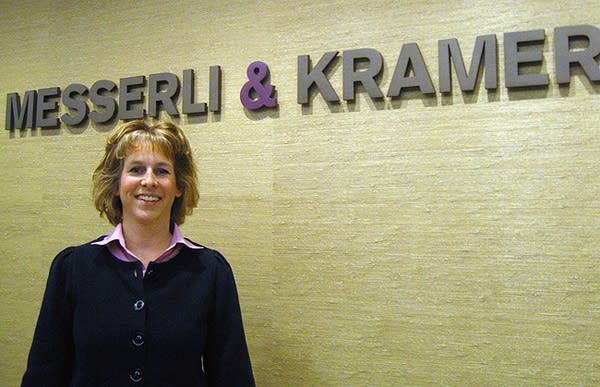Mortgage debts may linger, even after foreclosure
Go Deeper.
Create an account or log in to save stories.
Like this?
Thanks for liking this story! We have added it to a list of your favorite stories.
RealtyTrac reports today the number of Minnesota homes receiving a foreclosure-related notice in February rose 17 percent over the past year -- more than the national average of 6 percent.
Local experts say foreclosures have displaced nearly 90,000 Minnesotans from their homes since 2005, and more people will likely go through foreclosure this year.
Foreclosure is a traumatic experience, and for some people, getting beyond it might be even more arduous than they thought.
That's the case for a fellow named Dan, a classic case from the housing bust. He asked to use his first name only because he doesn't want his family to know of all his financial troubles.
Turn Up Your Support
MPR News helps you turn down the noise and build shared understanding. Turn up your support for this public resource and keep trusted journalism accessible to all.
A few years ago, he bought a townhome in Shoreview with adjustable rate, subprime financing. When his payments ballooned, Dan couldn't keep up. In 2008, he lost the townhome to foreclosure.
"I thought I was free and clear of the place. But now, just last month, I got a letter from a collection agency," he said.
Dan produced a yellow plastic folder containing some grim-looking documents, including the collection agency's letter. It reads:
"This is an attempt to collect a debt, and any information obtained will be used for that purpose. Your account has a balance of $36,735.89."
Like other subprime borrowers, Dan had purchased his townhome with two mortgages. The foreclosure wiped out the debt on the big first mortgage. But he's still on the hook for what he owed on the second mortgage, plus interest and fees, for a grand total of nearly $37,000.
And Dan likely faces a lawsuit for that amount.
In Minnesota, lenders on the primary mortgage can sue for lingering debts only if they execute what's called a foreclosure by action, which involves the courts.
However, most lenders on the primary loan perform a foreclosure by advertisement, where they post public notice of a pending foreclosure sale in a legal journal and cannot sue the homeowner for the difference between the loan amount and the sheriff's sale price.
Dan's situation with the second mortgage debt is increasingly common.
"That's something that does trouble us and a lot of consumer groups," said Daniel Mosteller, litigation counsel for the Center for Responsible Lending in Washington, D.C.
He and other observers say second mortgage lenders are ramping up collection actions. That's dealing a blow to people who think that a foreclosure or short sale erases their debt obligations tied to second mortgages.
"It's not only the foreclosure crisis we're facing right now and people losing their homes, but they're going to be hounded by debt collectors on predatory loans for years to come," Mosteller said.
Cataclysmic changes to mortgage financing standards during the housing boom laid the groundwork for the current rise in lawsuits over junior mortgage debt. It used to be that borrowers put down 20 percent of a home's price to qualify for a loan. But, as standards loosened, homebuyers like Dan were able to borrow that 20 percent from a second lender, increasing their debt burden.
Many other homeowners took out another form of junior mortgage debt -- home equity lines of credit. They used their houses as piggy banks to finance home improvements or other projects.
Second mortgage originations, including home equity lines of credit, nearly doubled between 2003 and 2006, according to data from Inside Mortgage Finance.
That market has subsequently shrunk dramatically. There were $14 billion in junior lien originations in the second quarter of 2009, the most recent period for which data were available. That's 87 percent lower than $110 billion in junior lien originations documented in the same quarter of 2006.

Mosteller said it will take a long time to gauge the scope of lawsuits over second mortgage debts, because many lenders and debt collection agencies could delay action on them for years.
Attorney Michelle Jester says some second mortgage lenders are getting more aggressive -- and faster -- about filing lawsuits. They may not even wait for the primary lender to foreclose. Her firm Messerli & Kramer represents a number of Midwestern second mortgage lenders.
"Well the trend that we've seen with some of our clients in the last few months is that they might start suit before the first mortgage holders foreclosure and redemption period entirely runs," Jester said.
That's because the lenders are taking an earlier look at their equity position in homes where a borrower has defaulted on a second mortgage, she said. With property values down so dramatically, those lenders can tell when they've lost their equity and are unlikely to get it back.
Jester has seen a spike in second mortgage lender lawsuits over the past six months. They involve debts that typically range from $30,000-$80,000, but can go much higher.
Jester admits many of the lawsuits are fruitless.
"I think the likelihood of these junior lien holders getting paid on the underlying debt anytime in the short term is very slim," she said.
That's largely because many debtors file for bankruptcy.

"There's a lot of people with a lot of real estate that's gone bad," said Terri Running, a bankruptcy attorney in St. Paul. Running said she sees a lot of clients who have been through foreclosure -- and then were sued. When second mortgage lenders win in court, they can garnish up to 25 percent of a debtor's wages.
Running said that usually tips people into bankruptcy.
"We don't live at or below our means, we live at or above our means, so a 25 percent to any given paycheck is a pretty big hit for the debtors," Running said.
Many consumer advocates say debtors are better off filing for bankruptcy concurrent with a foreclosure so that their credit scores take their blows all at once.
Some debtors who have worked to repair the credit damage caused by their foreclosure end up offsetting those repairs with bankruptcy. That's the case for Dan, the former townhome owner who's now getting sued over his second mortgage debt. He plans to file for bankruptcy.
"I hate it. I want to get my life back on track. My credit was getting better and better," he said. "Now all of a sudden something like this comes through and I'm back to where I started four or five years ago."
Dan insists that he never received notice from the second mortgage lender seeking repayment. Pressed on that question, he admits he vaguely recalls reading that he could yet owe something after his foreclosure.
Housing counselor Jennifer Lancour, with PRG Inc. in Minneapolis, said it's unusual for a second mortgage lender to sue someone out of the blue without prior communication. But, she said, it's not unusual to end up in Dan's situation, feeling surprised.
Lancour said some people were victims of predatory lenders and were misled, but others simply ignored their problems at their own peril.
"A lot of people get into the habit of not reading their mail. They see it's from their servicer, they're like, 'Whatever, I know what it is. I know what it is,'" she said. "So oftentimes in that mail, there are viable options, workout options, for people."
Lancour says unless people stay on top of those options, they may have no choice but bankruptcy.




